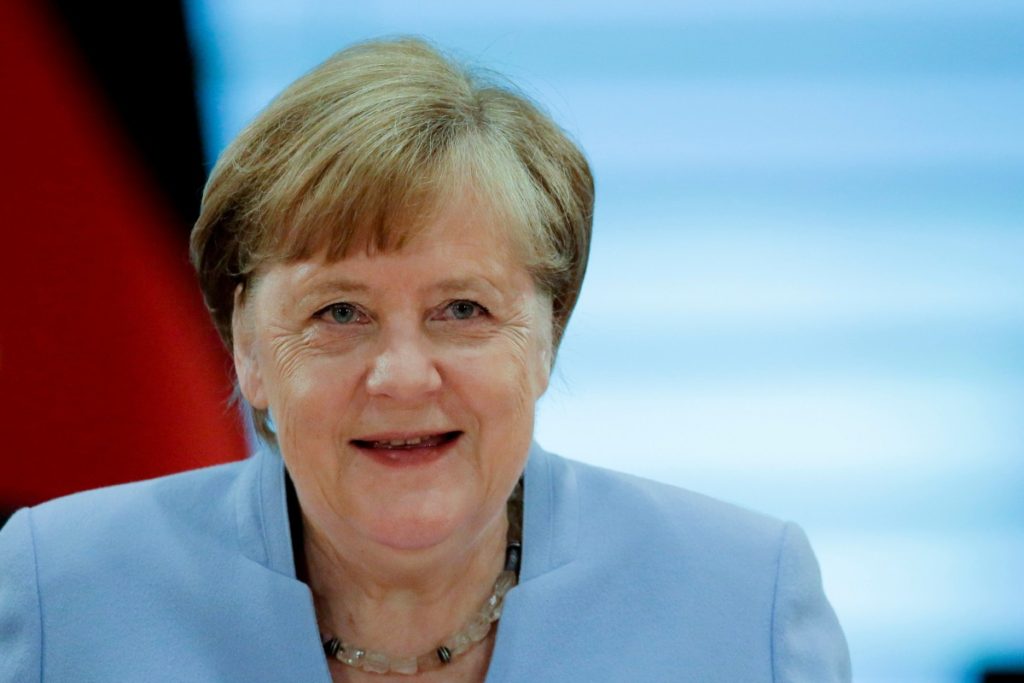July 24, 2020

An Iranian restaurant owner in Germany, who was stabbed in 2018 by neo-Nazis, has received an unpublicized visit from Chancellor Angela Merkel. Masud Hashemi, a political refugee from Iran, owns the Persian restaurant Safran in Chemnitz, located in what was formerly East Germany. He was a cinematographer for Islamic Republic of Iran Broadcasting (IRIB) but ran afoul of the authorities and was sentenced to prison. In 2012 he escaped Iran and asked Germany for political asylum. And in 2018 he opened the first Persian restaurant in the city.
Then, on the night of October 12, 2018, neo-Nazis attacked his restaurant. “Every Friday we had demonstrations in the city [against immigrants] and they harassed people,” says Hashemi. “They attacked my restaurant and a Jewish restaurant. They broke the windows and they drew swastikas on the doors and on the walls. In just one night, they beat up three foreigners and I was one of them. My head was injured badly and even after a year my back hurts.”
After spending eight days in the hospital, he was released. Then on March 3 of last year, the door to his restaurant opened unexpectedly and Merkel walked in, accompanied by Michael Kretschmer, minister-president of the state of Saxony. “We never expected this,” Hashemi told IranWire. “After attacks by the racists, Chancellor Merkel came to our city and delivered a speech. I was invited, too, but I never expected to see Ms. Merkel in my restaurant, unannounced.” He says he was impressed by the wonderful manners of the German chancellor. “There was no sign of the usual ceremonies.
Ms. Merkel entered, radiating kindness and respect, embraced me and apologized for what had happened.” Merkel stayed for dinner. Earlier, for lunch, she had gone to Schalom, a restaurant owned by a Jewish German. While in Schalom, she said she was deeply sorry that an Iranian had been attacked in her country, but she said nothing about planning to visit Hashemi in his restaurant for dinner that day.
“We hosted Ms. Merkel for about three hours,” he says. “She inquired about my health and said that she knew that I had been hospitalized after the attack by the neo-Nazis. But I tried to talk more about cultural issues and what must be done. ‘Ms. Merkel,’ I told her, ‘we live in cultural poverty here and it is the cultural poverty that has given rise to racism.’” Hashemi, who has now lived in Germany for six years, believes that the atmosphere in Germany changed after Arab refugees started arriving. “After they opened the doors and Syrian refugees came, some German people reacted negatively. I believe that the German government did the right thing,” by letting the Syrians in.
Unlike many immigrants who left Chemnitz after facing pressure from neo-Nazis, Hashemi is determined to stay. “I tell everybody who wants to leave this city, ‘You are surrendering and this is exactly what they want. Stay and fight.’” Merkel apparently enjoyed tasting a variety of Persian dishes. According to Hashemi, she especially enjoyed the appetizer platter and the Shiraz wine.